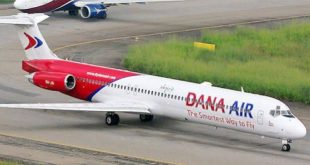
· Shipowners, Freight Agents, others urged to form influential groups
By Kenneth Jukpor
Despite the African Continental Free Trade Agreement (AfCFTA) estimated to boost intra-African trade by 52% by 2022, African shipowners have expressed concern that the region would miss out on the fiscal earnings from the regional trade as a result of the foreign domination in ship ownership.

The Secretary-General of African Shipowners Association (ASA), Mr. Funmilayo Folorunsho made this remark during an exclusive chat with MMS Plus newspaper last week, noting that African shipowners and freight forwarders haven’t shown readiness and requisite capacity to handle the impending boost in intra-African trade.
“Nigeria is the largest economy in Africa, so the nation must lead the campaign for the development of maritime transportation in Africa. Otherwise, we would develop intra-African trade that would still be carried by non-Africans. In biblical parlance, that would amount to building for another to inherit the gains” the ASA Secretary-General said.

She expressed confidence that the signing off the continental trade agreement would build African economies, but stated that Nigeria should be the leader in shipping because it had ship-owners and pedigree in ship ownership.

“Nigeria must lead in the advocacy that this trade been generated by African nations must be carried by African owned vessels in Nigeria, Kenya, Egypt, Morocco, among others. This is the time to develop the African fleet” she said.
Speaking on the role of freight forwarders among nations in the region, she admonished them to link up, network and form a formidable international group.
“For the freight forwarders, to maximize the gains of AfCFTA there would be need to form an international group. You would find that this group can be responsible for whatever is moving from Uganda to Nigeria for instance. Ship-owners in the region can also have a similar bond; the same thing applies to maritime lawyers and other professionals and vocations in the maritime sector. What African Union is looking out for is a formidable group”, she said.
Speaking from the perspective of freight forwarders, the President of National Association of Government Approved Freight Forwarders (NAGAFF), Chief Increase Uche stressed that freight forwarders across the region need to improve on the standard of their skills and knowledge and explore avenue to increase their financial capacity.
“With regards AfCFTA, freight forwarders in the region are well positioned to repel the dominance by foreigners. However, there would be need to improve on the training for better skills and the financial muscle. Freight forwarders should not be contented with only facilitating ordinary documentation but grow to become and asset-based freight forwarders that handle third party logistics services such as distribution and warehousing”, he said.
However, the NAGAFF boss agreed with the ASA Secretary-General that the practice of freight forwarding in the region would fare better if there was an African body of freight forwarders to call the shots in the carriage of goods.
“What is playing out globally in freight forwarding practice is competition. However, once we have developed the human capacity and got the fiscal muscle; we can be responsible for majority of the trade in the region” he said.
However, the NAGAFF President also noted that the current closure of Nigerian land borders was a big hindrance to the nation in terms of promoting regional trade.
Recalling that the African Federation of Freight Forwarders (AFOFF) which has Chief Lexzy Nwangwu as President was set out to address this challenge, Increase Uche lamented that the AFOFF hadn’t lived up to the expectations.
Speaking with MMS Plus on the probability of foreign dominance in freight forwarding under the regional agreement, Chief Lexzy asserted that foreigners would continue to dominate because of the huge finance required in the freight forwarding practice.
However, his reasons were anchored on the fact that the foreign freight forwarding companies enjoy access to single digit interest loans for their investments while African’s don’t have such luxury.
“Foreigners have access to single digit interest loans from their countries but we don’t have such in Nigeria. Until the Nigerian government and other African nations see the need to guarantee single digit interest loans to freight forwarders, we may not be able to compete” Chief Lexzy said.
Noting that AFOFF would have provided a platform for freight forwarders in the region to pool resources, he lamented that the struggle for relevance among Nigerian freight forwarding groups scuttled the initial lofty plans of AFOFF.
Lexzy also asserted that some influential persons in governance in the country also stifled the growth of the regional freight forwarding body over the years.
“I attended several meetings in Nairobi and Lome. I was impressed with the level of commitment from other countries but the rift between freight forwarding groups in Nigeria meant that Nigeria couldn’t take its rightful place and that was why AFOFF could make meaningful impact” he said.
While the burden of access to funds at single digit interest rate also applies to ship-owners, the Registrar of the Council for the Regulation of Freight Forwarding in Nigeria (CRFFN) Barr. Sam Nwakohu stressed that developing human capacity was more crucial to freight forwarders.
“I quite agree with the idea of having a formidable group in the region. However, I think the first thing to do is to ensure we have a crop of freight forwarders with requisite capacity. We need to have freight forwarders who know that their jobs go beyond clearing goods at the ports. This is the reason why we have intensified efforts to enshrine professionalism in freight forwarding practice in Nigeria. We want to have a benchmark so that those practicing freight forwarding would truly be professionals”, he told MMS Plus newspaper.
Referring to AfCFTA as a broad trade platform, Barr. Nwakohu also revealed that CRFFN had set up a committee saddled with the onus of studying the agreement to explore roles and opportunities for Nigerian freight forwarders.
Recall that the Executive Secretary of Nigerian Shippers’ Council (NSC) has been clamouring for mergers among freight forwarding companies, positing that the practice would be more efficient when there are few freight forwarding companies who could provide the end-to-end services including warehousing and haulage.
“If some of us try to do it alone, we may find it very difficult to meet up. It would require huge resources to own companies that can take up all aspects of freight forwarding business but the solution isn’t farfetched. Government’s intention of encouraging local content should be full promoted and few mergers and partnerships among freight forwarders would see us achieve that. If the government insists that indigenous operators are responsible for major contracts like the Chinese Construction companies and Julius Berger for instance, this would go a long way to build the capacity of freight forwarders” a front-line freight forwarder said.
 MMS PLUS NG – Maritime, Aviation, Business, Oil and Gas News Online Newspaper with coverage in Maritime, Oil and Gas, Aviation, Power and Energy as well as Financial News
MMS PLUS NG – Maritime, Aviation, Business, Oil and Gas News Online Newspaper with coverage in Maritime, Oil and Gas, Aviation, Power and Energy as well as Financial News









